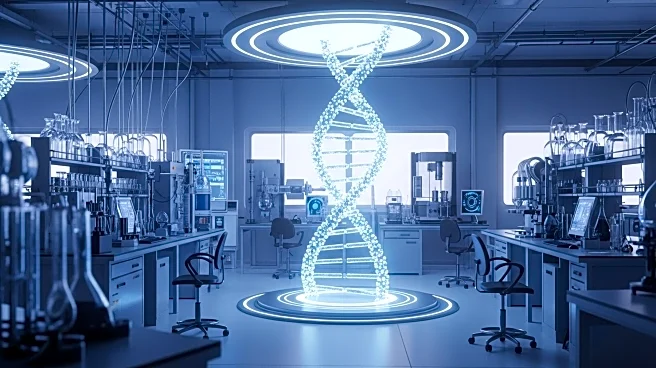What's Happening?
Colossal Biosciences, a Dallas-based biotech company, has announced a significant advancement in its efforts to resurrect the extinct dodo bird. The company has successfully grown primordial germ cells from the rock dove, a precursor to the dodo's closest living relative, the Nicobar pigeon. This development is a crucial step towards gene-editing these cells to reconstruct a dodo-like genome. Colossal plans to inject these gene-edited cells into chicken embryos, which could potentially lead to the birth of a dodo-like bird. The company aims to eventually reintroduce the dodo to its native habitat in Mauritius.
Why It's Important?
This breakthrough represents a significant step forward in the field of de-extinction and avian conservation. By developing the ability to grow and edit primordial germ cells, Colossal is not only advancing its de-extinction projects but also contributing to conservation efforts for endangered species. The technology could potentially be used to preserve genetic diversity and prevent the extinction of other avian species. However, the ethical implications of de-extinction and the feasibility of reintroducing extinct species into modern ecosystems remain subjects of debate.
What's Next?
Colossal plans to continue its research by developing the Nicobar pigeon's primordial germ cells for further gene editing. The company is also working on other de-extinction projects, including the woolly mammoth and the Tasmanian tiger. As these projects progress, they may face regulatory and ethical challenges, as well as the need to ensure that reintroduced species can survive and thrive in their intended habitats.










